
The Band was a Canadian-American rock band formed in Toronto, Ontario, in 1967. It consisted of Canadians Rick Danko, Garth Hudson, Richard Manuel, Robbie Robertson, and American Levon Helm. The Band combined elements of Americana, folk, rock, jazz, country, influencing musicians such as George Harrison, Elton John, the Grateful Dead, Eric Clapton and Wilco.

Richard Clare Danko was a Canadian musician, bassist, songwriter, and singer, best known as a founding member of the Band, for which he was inducted into the Rock and Roll Hall of Fame in 1994.

Ronald Cornett Hawkins was an American rock and roll singer, long based in Canada, whose career spanned more than half a century. His career began in Arkansas, United States, where he was born and raised. He found success in Ontario, Canada, and lived there for most of his life. He was highly influential in the establishment and evolution of rock music in Canada.
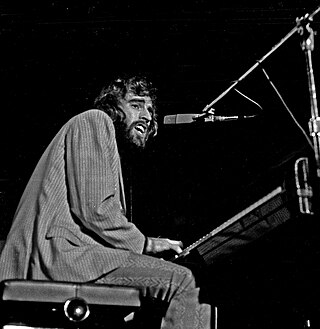
Richard George Manuel was a Canadian musician, singer, and songwriter, best known as a pianist and one of three lead singers in the Band, for which he was posthumously inducted into the Rock and Roll Hall of Fame in 1994.

Eric "Garth" Hudson is a Canadian multi-instrumentalist best known as the keyboardist and occasional saxophonist for rock group the Band, for which he was inducted into the Rock and Roll Hall of Fame in 1994. He was a principal architect of the group's sound, described as "the most brilliant organist in the rock world" by Keyboard magazine. With the deaths of Richard Manuel in 1986, Rick Danko in 1999, Levon Helm in 2012, and Robbie Robertson in 2023, Hudson is the last living original member of the Band.
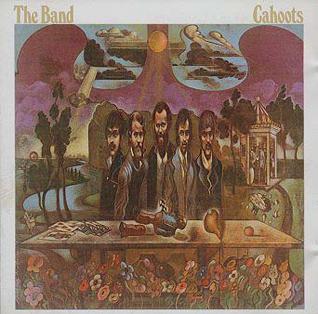
Cahoots is the fourth studio album by Canadian/American rock group the Band. It was released in 1971 to mixed reviews, and was their last album of original material for four years. The album's front cover was painted by New York artist/illustrator Gilbert Stone, while the back cover features a photograph portrait of the group by Richard Avedon. The album features guest vocals from Van Morrison. Libby Titus, the partner of drummer Levon Helm and mother of their daughter Amy Helm, also contributed uncredited backing vocals to "The River Hymn", the first time a woman appeared on a Band album.

Northern Lights – Southern Cross is the sixth studio album by Canadian-American rock group the Band, released in 1975. It was the first album to be recorded at their new California studio, Shangri-La, and the first album of all new material since 1971's Cahoots. It was recorded using a 24-track tape recorder, which allowed Garth Hudson to include multiple layers of keyboards on several tracks, and it is the only Band album where all songs are credited as compositions of guitarist Robbie Robertson.
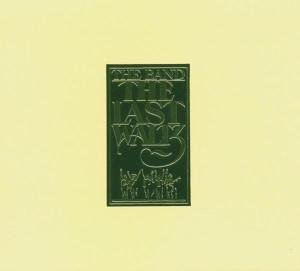
The Last Waltz is the second live album by the Band, released on Warner Bros. Records in 1978, catalogue 3WS 3146. It is the soundtrack to the 1978 film of the same name, and the final album by the original configuration of the Band. It peaked at No. 16 on the Billboard 200.

Jericho is the eighth studio album by Canadian-American rock group the Band. Coming seventeen years after their "farewell concert", it was released in 1993 and was the first album to feature the latter-day configuration of the group, as well as their first release for the Rhino subsidiary Pyramid Records.

Jubilation is the tenth and final studio album by Canadian/American rock group the Band. Recorded in the spring of 1998 in Levon Helm's home studio in Woodstock, New York, it was released on September 15, 1998. For the first time since the group reformed without guitarist and songwriter Robbie Robertson, there were more originals than covers. Songs include "Last Train to Memphis", featuring guest guitarist Eric Clapton, Garth Hudson's solo instrumental closer "French Girls", Rick Danko's "High Cotton" and the ode to Ronnie Hawkins, "White Cadillac".

Across the Great Divide is a box set by Canadian-American rock group The Band. Released in 1994, it consists of two discs of songs from the Band's first seven albums, and a third disc of rarities taken from various studio sessions and live performances. The set is now out of print, having been replaced by the five-CD/one-DVD box set A Musical History which was released in September 2005.

Live at Watkins Glen is a 1995 album by the Band, presented by Capitol Records as a live album from the Summer Jam at Watkins Glen rock festival held outside Watkins Glen, New York, on July 28, 1973, in front of 600,000 people. Garth Hudson's organ solo, "Too Wet to Work", and the plainly titled "Jam" come from the actual Watkins Glen concert, as does the introduction of the group by Bill Graham. The former track appears on the out-of-print 1994 box set Across the Great Divide, but the latter track is only present on the Watkins Glen disc. The remainder of the tracks are two studio outtakes with overdubbed crowd noise, "Back to Memphis" and "Endless Highway", plus five tracks from the Academy of Music shows in December 1971 and "Don't Ya Tell Henry" from the Woodstock festival in 1969. The two studio outtakes are available on the 2001 re-release of Moondog Matinee, without the crowd overdubs. The Academy of Music tracks are available on the 2001 two-CD re-release of Rock of Ages as "previously unavailable" tracks.
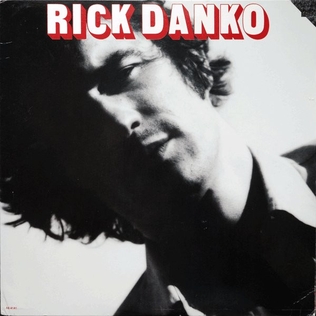
Rick Danko is the 1977 eponymous debut by the bassist and singer for the Band. Featuring ten tracks mainly written by Danko, mostly in conjunction with lyricists Bobby Charles and Emmett Grogan, it was the first solo album by any member of the group and was Danko's only solo studio album; the other two albums he released in his lifetime were solo live recordings and collaborative studio albums.
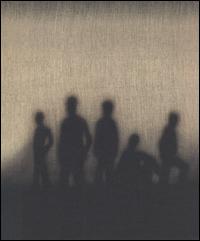
A Musical History is the second box set to anthologize Canadian-American rock group the Band. Released by Capitol Records on September 27, 2005, it features 111 tracks spread over five compact discs and one DVD. Roughly spanning the group's journey from 1961 to 1977, from their days behind Ronnie Hawkins and Bob Dylan through the departure of Robbie Robertson and the first disbanding of the group. The set includes highlights from each of the group's first seven studio albums and both major live recordings and nearly forty rare or previously unreleased performances.

Cryin' Heart Blues is a seventeen-track 2005 compilation of studio sessions and live recordings by Rick Danko, the late bassist of The Band. The album was taken from a wide variety of sources, dating from the sessions for Danko's eponymous first album through to other studio sessions recorded between about 1978 to 1988 and live recordings from 1979 and 1990.
The Cate Brothers is an American band led by the songwriter-musician duo of twin brothers Earl and Ernest "Ernie" Cate, from Fayetteville, Arkansas. In the mid-1960s, they became performers of country soul music at clubs and dances in Arkansas and elsewhere in the mid-South of the United States. Both brothers are singers, with Earl playing guitar and Ernie playing piano. The group began recording in 1970, releasing their final album in 2006.
You Are What You Eat is a 1968 American counterculture semi-documentary movie that attempts to capture the essence of the 1960s flower power hippie era and the Haight-Ashbury scene. The film features locally known personalities, including well known and somewhat mythical pot dealer Super Spade and musicians of the day, including Tiny Tim, David Crosby and Peter Yarrow, and radio disc jockey, Rosko.
Stanley Martin Szelest was an American musician from Buffalo, New York, known for founding an influential blues band in the 1950s and 1960s, Stan and the Ravens, and later as a keyboardist with Ronnie Hawkins and, briefly, with The Band.
Terry Danko is a Canadian musician and songwriter who has been active since childhood. He has written, performed and recorded his own material as a solo artist and as a member of a number of groups, such as Tin Pan Alley, Bearfoot and Terry Danko, Marty Grebb and Friends.
"We Can Talk" is a 1968 song by The Band that was the opener for the second side of their debut album Music From Big Pink Written by Richard Manuel, it features The Band's three main vocalists in nearly equal turns, often finishing each other's phrases. Initially a staple of their concerts, it was dropped from the set list in 1971.















